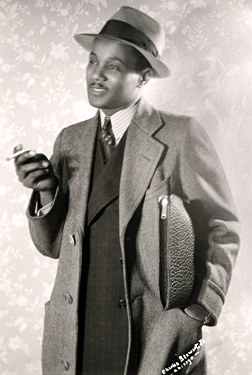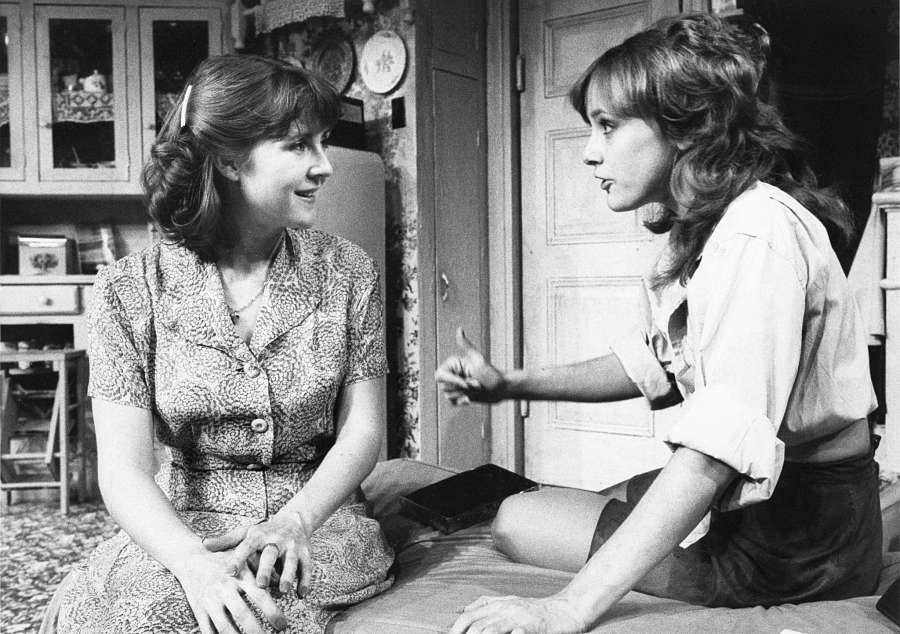December 1855 (165 years ago)
Laura Keene, a popular actor of her day, starts her own theatre company in New York. Keene is best known for starring in Our American Cousin the night Abraham Lincoln was shot in 1858. The cuff sleeve from her costume, stained with Lincoln’s blood, will later be on view in the National Museum of American History. More than just an actress who happened to be present for a national tragedy, Keene will prove herself to be a talented artist and businesswoman, successfully managing her own career, opening multiple companies in Baltimore and New York, and touring California and Australia, all during a time of great political unrest when theatre profit margins will be slim.
December 1905 (115 years ago)
Variety is launched by Sime Silverman as a weekly New York City publication to cover theater and vaudeville. Silverman, a vaudeville critic who wrote for New York’s Morning Telegraph under the pen name “The Man in the Third Row,” was fired for critiquing a show that had paid for advertising in the Telegraph as “n.g.” (no good). His firing made him decide to start his own paper “in order to tell the truth.” Silverman will later start Daily Variety to cover Hollywood just before his death in 1933.
December 1945 (75 years ago)

Chicago actor and playwright Theodore Ward, considered the “dean of Black dramatists,” lands a Theatre Guild scholarship that allows him to study with Kenneth Thorpe Rowe while revising his Reconstruction-era play, Our Lan’. The resulting draft of the play will receive two productions in New York in 1947: first an experimental downtown production at Henry Street Settlement that will prove a critical success, then a Broadway premiere at Royale Theatre. Scholar Owen E. Brady will lament that Broadway producer Eddie Downling turns Ward’s “stark, historical anecdote into a lavish musical spectacle” in trying to pander to Broadway audiences.
December 1945 (75 years ago)
Strange Fruit by Lillian Smith, a stage adaptation of her bestselling novel depicting a tragic interracial love story, opens on Broadway directed by José Ferrer. It will become a point of contention between Walter White, the leader of the NAACP, and Langston Hughes, as Black artists and intellectuals debate the social and political ramifications of portraying morally ambiguous Black characters. White will hold up Strange Fruit as an example of a sympathetic depiction of Black people; notably, his daughter, Jane White, stars in the production as Nonnie. For their part, Hughes and others will push for representation beyond tragic martyrs.
December 1960 (60 years ago)

The Ballad of The Brown King, a Christmas cantata composed by Margaret Bonds with libretto by Langston Hughes, is performed at the Clark Auditorium of the New York City YMCA. The performance, which focuses on King Balthazar as one of the three Magi, originally premiered six years earlier, but Bonds and Hughes revise and expand the work for this performance, sung by the Westminster Choir, and dedicate the performance to Dr. Martin Luther King Jr. Scholar Bernard L. Peterson Jr. will one day note the significance to musical theatre history of this performance: The following year, Hughes will open the more well known Black Nativity, a song play based on the same subject matter, at Lincoln Center.
December 1980 (40 years ago)
Beth Henley’s Crimes of the Heart, which debuted the previous year at Actors Theatre of Louisville in Kentucky, bows at Manhattan Theatre Club. MTC will go on to produce several more works by Henley in the coming decades, and the show will transfer to Broadway and earn Henley a Pulitzer.


